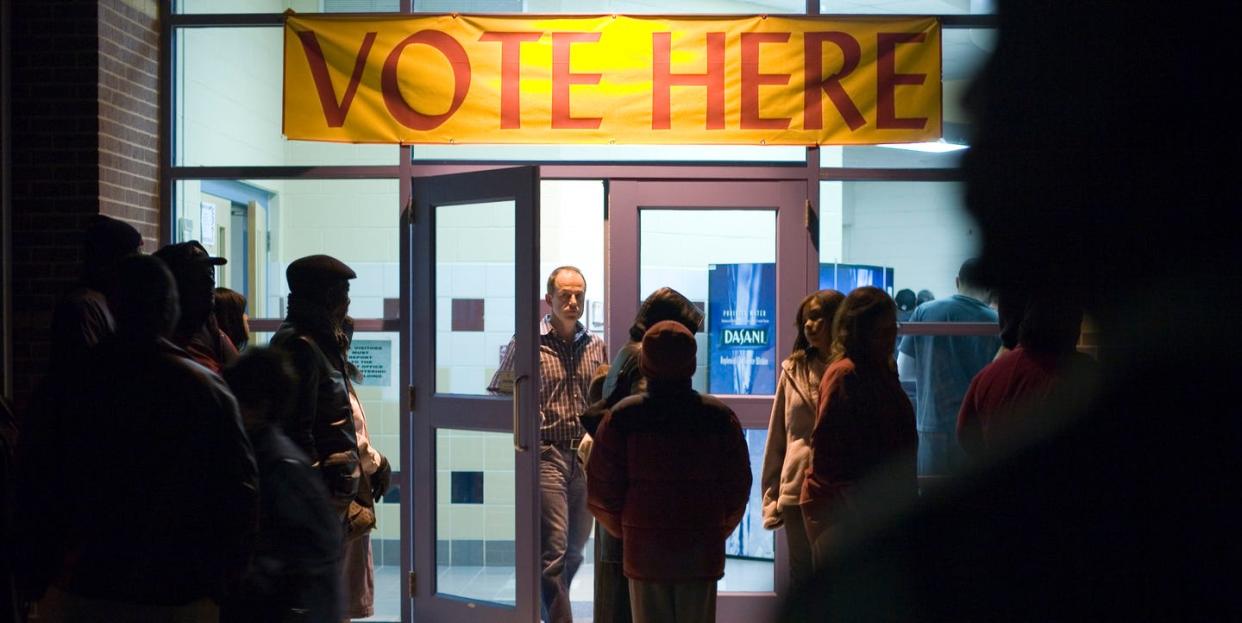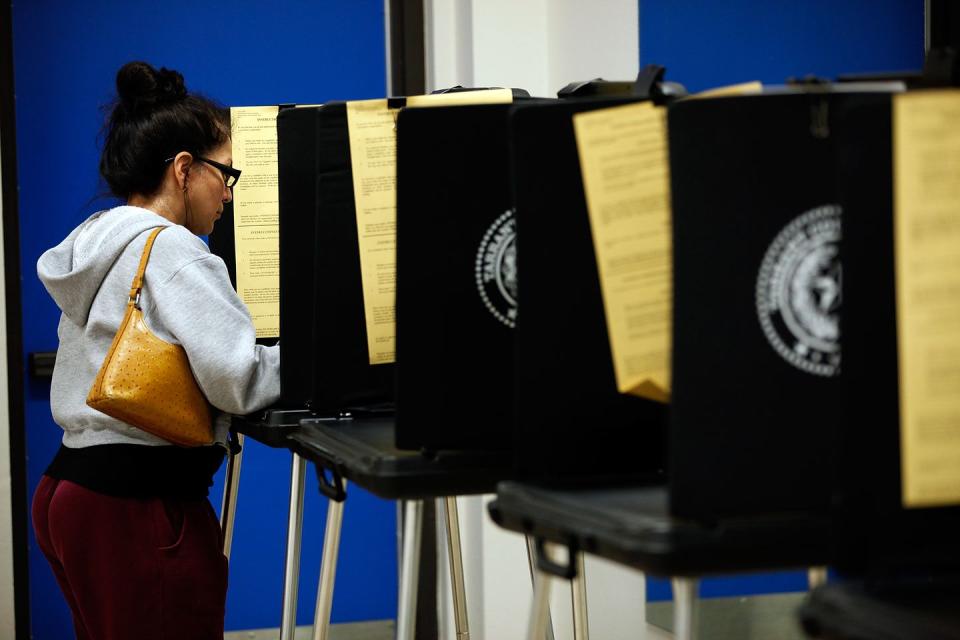Texas and Other Fine States Are Flatly Refusing to Use Voting Machines With a Paper Trail

The good folks at The Brennan Center For Justice have sent up yet another red flag concerning the fundamental integrity of the way we elect people to public office. This is not the first one of these they've hoisted. In fact, they've flown enough red flags on this issue that their headquarters must look like Red Square on May Day. Here, they're warning us that our voting machines are still one baby step above Pong. Too many of our localities are relying on machines well past warranty. (Officials in 31 states told the researchers that they have to replace their machines before the 2020 election. I won't be standing on one leg waiting for that.) Some of the machines are so old that there are no spare parts for them any more.
But the real glitch in the system is its continued and inexplicable ambivalence regarding a paper trail. There are a lot of states that have committed to adding a paper backup to their current systems, but a number of them haven't done it yet, for reasons ranging from economic considerations to the process getting gummed up in recalcitrant state legislatures. And then, there's Texas.
While only one local election official (from Texas) responded that he hoped to replace his current paperless system with another paperless system, it is clear he is not entirely alone. Despite the recent attention to election security, and repeated warnings by security experts that voting machines should have a voter-verified paper backup, several counties in Texas have purchased machines without a paper trail since 2016.

[Rokey] Suleman [an election official in South Carolina] expressed dismay at the idea of continuing to purchase paperless equipment. “Why? Why? Especially with heightened sense of paranoia about outside influence into our election systems. We need to have a way to independently validate voters’ intent away from tabulation equipment. I don’t understand how any election official could really consider a totally paperless system in this day and age.” Shantiel Soeder, election and compliance administrator at Ohio’s Cuyahoga County Board of Elections, shared Suleman’s sentiment. “At the end of the day, we have that ballot that we can always go back to. We still find it important to print out receipts for other transactions in our lives. To have absolutely no paper, it’s almost irresponsible. These are people’s votes!”
Six of the 12 states (Delaware, Georgia, Louisiana, New Jersey, South Carolina, and Pennsylvania) that still use paperless electronic machines as the primary polling place equipment in at least some jurisdictions have either passed laws or taken other actions to replace those systems with machines that produce a paper backup. Of those, Delaware appears to have secured enough funds to replace its systems this year. New Jersey and Pennsylvania have yet to secure sufficient funding for such purchases. In Georgia and South Carolina, state election officials have requested funds to do so, and those requests are currently being considered by the state legislatures. Louisiana appears to have secured sufficient funds to replace equipment, but its purchase of new machines is stalled due to a controversy over how the state conducted its bidding process.
I often think that, had the Supreme Court not blown up the constitutional process of deciding presidential elections in 2000, the exercise of having a constitutional crisis decided by the Constitution would have maintained a general consensus that we're all in this together, at least for the purposes of elections. I was younger then.
Respond to this post on the Esquire Politics Facebook page here.
('You Might Also Like',)

